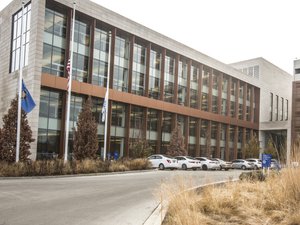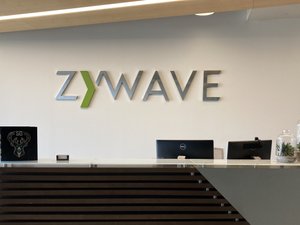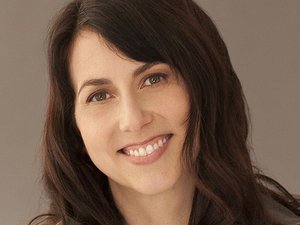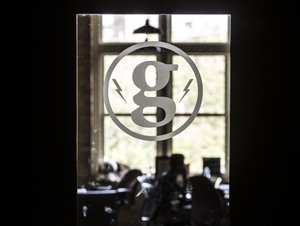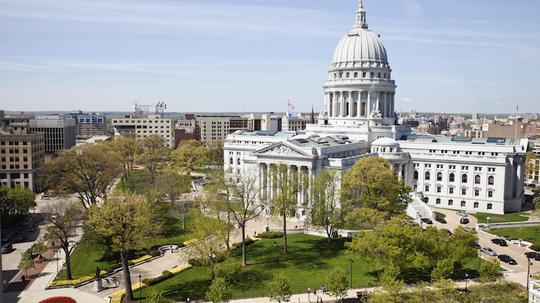
When Tobi Silgman first moved to Madison 20 years ago, the city epitomized life in a college town. Yet to step outside of the palatial presence of the Capitol on State Street, or beyond the campus borders at the University of Wisconsin-Madison, presented the same picture of tidy yards and two-story homes ubiquitous to any other family-friendly suburb.
College grads, on the other hand, remained transitory.
“People who were single got the heck out,” says Silgman, a realtor at Madison-based Lauer Realty Group Inc. “Now, it’s completely changed. It’s a place where singles want to be.”
Today, Madison is billed as one of the country’s top destinations for Millennial homebuyers, both for its affordability and for its modern urban lifestyle. Nearly 75 percent of recent movers to the city were Millennials, and data suggests these buyers have every intention of sticking around, according to recent research from the National Association of Realtors.
So, what’s drawing millennials to Madison? Lawrence Yun, NAR’s chief economist, says it all comes down to money. As of 2017, the median income for millennials who had recently moved to the city was $68,500.
“In comparison to other areas, Madison offers one of the highest wages for millennials,” Yun says. “Moreover, this income level combined with the robust opportunities and affordability, make Madison among one of the most appealing locations for millennials who are looking to stay longer and raise families.”
The opportunities Yun points to no doubt surround Madison’s growing startup and tech ecosystem.
The city is home to a host of notable names and locations of corporate giants including Google and American Family Insurance; leading healthcare information technology firm, Epic Systems; the "eBay of freight" and country’s fastest growing company Swan Leap; the molecular diagnostics firm Exact Sciences; and popular customer service software provider Zendesk.
But it’s not just big names luring millennials to jobs in Madison, said Silgman.
“There are a lot of startups,” she said. “There are more people moving from out of state, maybe from working on the coast. I’m definitely seeing a lot more people in the tech industry.”
The shift is far from anecdotal. In Silicon Prairie — the colloquial name given to the Midwest’s entrepreneurial frontier — Madison ranks #5 in startup activity and entrepreneurship, a ranking topped only by cities of greater size, such as St. Louis, Chicago and Minneapolis, according to the 2018 State of Silicon Prairie report.
The report measured key startup metrics in eight areas including small business activity, innovation, funding, venture investment, the number of “cool jobs,” and “real companies,” connectivity, structure, and community spirit, which all indicate a healthy entrepreneurial environment.
“Pound for pound, Madison may be the best ecosystem in the middle part of the country,” the report reads. “There is not a single metric where Madison underperforms.”
The numbers indicate a monumental shift from Madison in the early aughts. Back then, resources for entrepreneurs were relegated to monthly happy hours, says Scott Resnick, COO at Hardin Design & Development and entrepreneur-in-residence at StartingBlock.
“The venture capital community and the biotech community was strong, but there wasn’t much activity around soft tech that we recognize today,” Resnick explains. “When we graduated in 2009, there was roughly $25-35 million in VC activity in Madison. Fast forward, and it’s about $160-175 million.”
Troy Vosseler, entrepreneur and co-founder at startup accelerator, gener8tor, says while the University of Wisconsin - Madison remains a force on Madison’s entrepreneurial front, the city’s changing social infrastructure is fueling its growth. That’s what’s allowed the accelerator to pool its resources to back a diverse range of ventures including music and visual artists, as well as tech, and extend its reach beyond the Madison region to Milwaukee and Minnesota.
Since launching in 2012, about 60 percent of gener8tor alumni have raised more than $1 million in follow-on financing or have been acquired by other companies.
“A lot of the support organizations that are strong stakeholders in the ecosystem were just starting out or didn’t even exist,” in the early 2000s, he explained. “There is a much higher rate of congeniality, more cooperation among connections. I think a lot of the new things happening are very much oriented around the young population.”
That genial energy is no more evident than at StartingBlock, the three-floor entrepreneurial hub located inside American Family Insurance’s Spark Building. In the year since the collaborative space opened, it has helped to launch 37 early-stage companies, provided mentorship opportunities for nearly 100, and helped to raise more than $15.3 million in capital.
Resnick says the genesis for StartingBlock came out of a desire to position Madison as a viable tech hub roughly six years ago.
"If we can import and increase capital, it will position the state very well.”
“We asked ourselves ‘What’s next?” he says. “If I were to point to one piece, it is the individuals who just wanted to do it in Madison. That talent started to remain here and helped drive forward that conversation. We’re starting to see the seeds that we planted, the fruits of our labor. ”
Still, Madison is very much a startup hub flying under the radar. The State of Silicon Prairie report urged the city’s startup leaders to tell its story nationally, and to “avoid recruiting big names … looking for an inexpensive place to open a development shop.”
Resnick says Madison’s startup community needs to incorporate focus on wealth generation, but also how the region can share in the prosperity of the tech industry.
Similar to other cities, Madison also faces hurdles in diversifying its funding streams — and its founders, including attracting more female founders and people of color to the industry.
Vosseler says both are necessary for a healthy, sustainable economy.
“We need to learn how can we brag about ourselves and attract more capital, and how that’s been changing over the past decade,” he says. “We should embrace that. If we can import and increase capital, it will position the state very well.”

